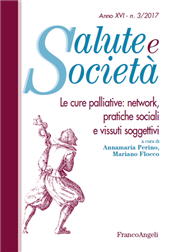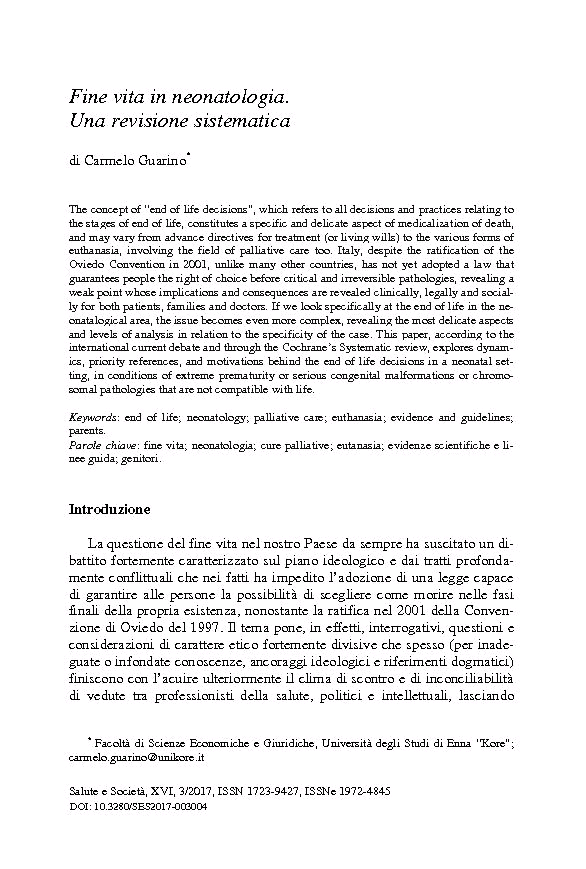Fine vita in neonatologia : una revisione sistematica
31-44 p.
The concept of "end of life decisions", which refers to all decisions and practices relating to the stages of end of life, constitutes a specific and delicate aspect of medicalization of death, and may vary from advance directives for treatment (or living wills) to the various forms of euthanasia, involving the field of palliative care too. Italy, despite the ratification of the Oviedo Convention in 2001, unlike many other countries, has not yet adopted a law that guarantees people the right of choice before critical and irreversible pathologies, revealing a weak point whose implications and consequences are revealed clinically, legally and socially for both patients, families and doctors.
If we look specifically at the end of life in the neonatalogical area, the issue becomes even more complex, revealing the most delicate aspects and levels of analysis in relation to the specificity of the case. This paper, according to the international current debate and through the Cochrane's Systematic review, explores dynamics, priority references, and motivations behind the end of life decisions in a neonatal setting, in conditions of extreme prematurity or serious congenital malformations or chromosomal pathologies that are not compatible with life. [Publisher's text].
Is part of
Salute e società : XVI, 3, 2017-
Articles from the same issue (available individually)
-
Information
ISSN: 1972-4845
KEYWORDS
- Fine vita, neonatologia, cure palliative, eutanasia, evidenze scientifiche e linee guida, genitori
- End of life, neonatology, palliative care, euthanasia, evidence and guidelines, parents



